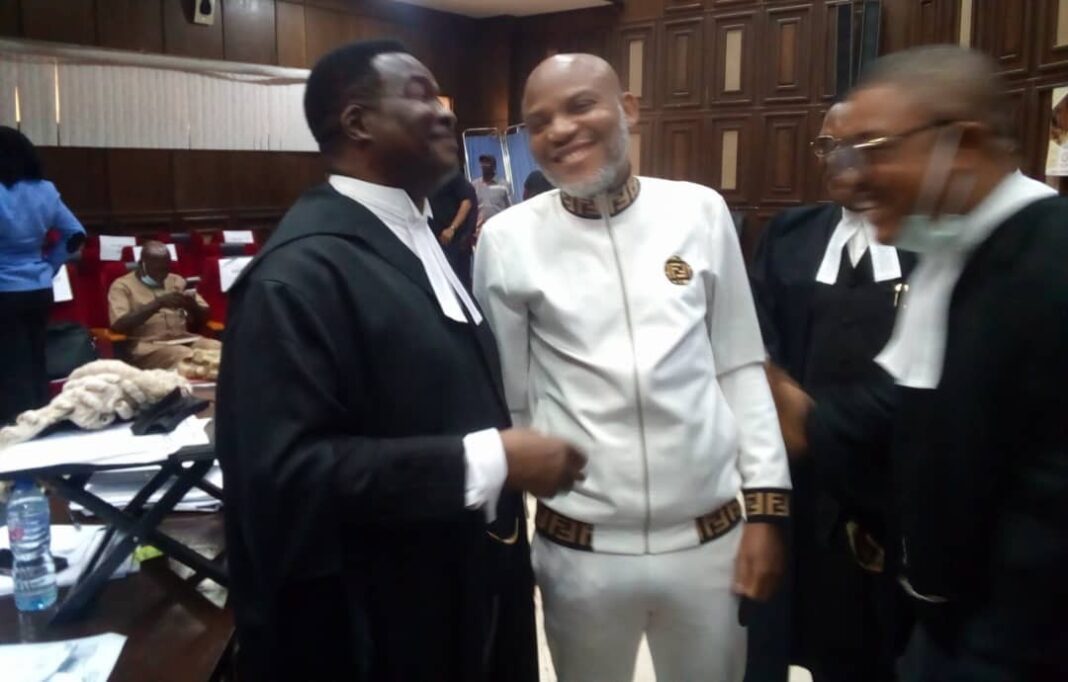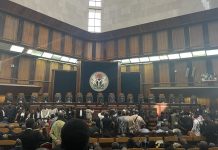The Federal High Court sitting in Abuja, on Friday, slated May 18 to rule on an application the detained leader of the Indigenous People of Biafra, IPOB, Nnamdi Kanu, filed to be released on bail, pending the determination of the treasonable felony charge the Federal Government entered against him.
Trial Justice Binta Nyako adjourned to rule on the application after she heard arguments from both Kanu’s lawyer, Chief Mike Ozekhome(SAN), and the prosecution counsel, Mr. Shuaibu Labaran.
Whereas, Ozekhome(SAN), argued that his client was entitled to bail considering that he still enjoys the presumption of innocence under the 1999 Constitution, as amended, FG’s lawyer, Labaran, urged the court to decline the bail request.
The prosecution maintained that Kanu betrayed the previous discretion the court exercised in his favour, when he jumped bail and escaped from the country.
He argued that it was owing to Kanu’s previous conduct that the court revoked his bail and issued a bench warrant for his arrest.
“My lord granted him bail on 2017 on health ground, but since then, till date, no medical record was submitted to the court until he jumped bail.
“What we should be saying is contempt of court because he has flagrantly violated the orders of this court,” Labaran submitted.
However, Ozekhome faulted FG’s lawyer for alleging that his client jumped bail.
He told the court that Kanu attended his trial regularly, until the military, in September 2017, invaded his home in an operation that led to loss of lives.
Ozekhome insisted that it was the action of the Nigeria Army that made his client to run for his life.
Besides, he argued that FG violated the fundamental rights of his client in the way he was forcefully abducted and extra ordinarily renditioned back to Nigeria.
He, therefore, urged the court to allow Kanu on bail to enable him to effectively prepare his defence to the charge pending against him.
Meanwhile, before the case was adjourned till May 18 and 26, Justice Nyako dismissed Ozekhome’s contention that Kanu’s extra-ordinary rendition was illegal.
She stressed that there was a subsisting warrant from the court, for the arrest of the defendant wherever he was found.
(Vanguard).







